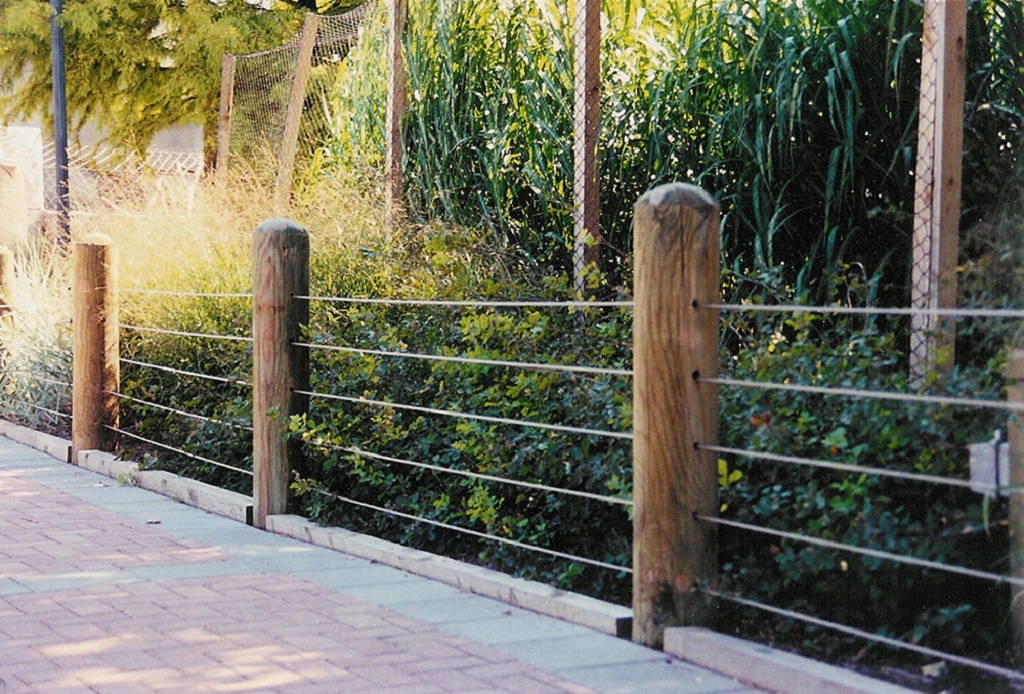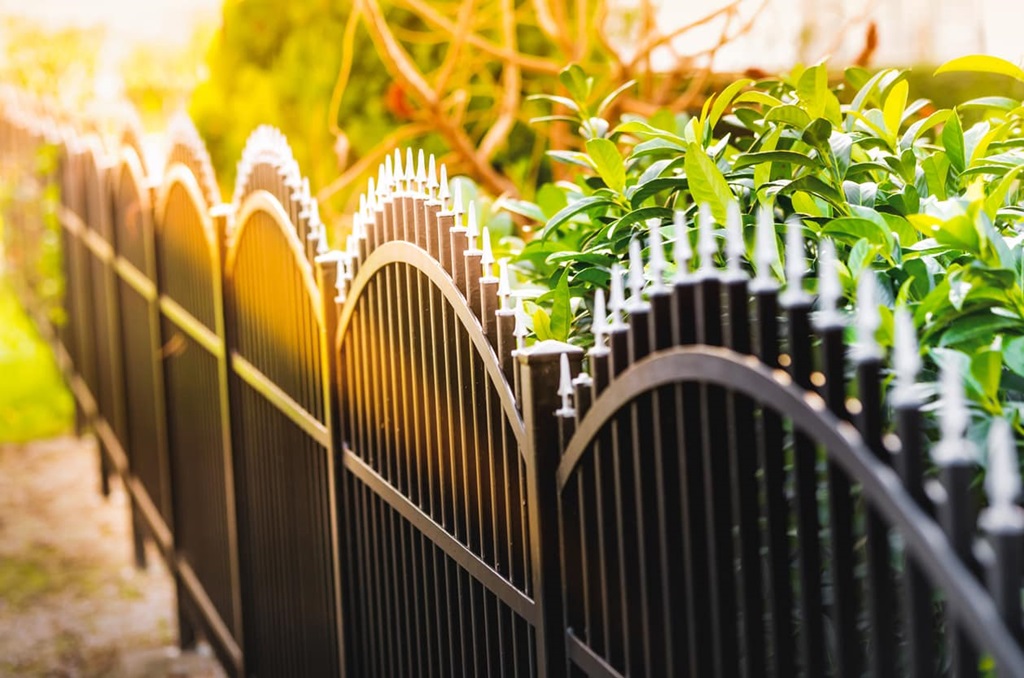As a seasoned home improvement professional, I’ve seen firsthand how a simple addition like a fence can transform a property. Among the various fence styles out there, one that never fails to captivate with its rustic charm and timeless appeal is the round wood fence.
In this blog post, I’ll delve into the importance of a round wood fence, why it’s a fantastic choice for your property, and the different types of round wood fence posts to consider. So, grab a cup of coffee, sit back, and let’s embark on this journey to enhance your property’s aesthetics and functionality!
The Importance of a Round Wood Fence
A fence serves multiple purposes beyond just marking property boundaries. It provides privacy, and security, and adds aesthetic value to your home. But why specifically choose a round wood fence?
1. Natural Aesthetics:
There’s something inherently inviting and warm about the natural look of wood. A round wood fence blends seamlessly with the surrounding landscape, whether you live in a suburban neighborhood or a countryside retreat. It exudes a rustic charm that complements various architectural styles, enhancing your property’s curb appeal.
2. Durability:
When properly maintained, wood fences can last for decades. Round wood fence posts, in particular, boast exceptional strength and resilience, making them ideal for withstanding the elements. With regular maintenance like sealing and staining, your round wood fence can withstand rain, snow, and sun for years to come.
3. Versatility:
Round wood fences offer versatility in design and customization. Whether you prefer a simple, classic look or something more intricate, the flexibility of wood allows for endless design possibilities. From traditional picket fences to charming split-rail designs, a round wood fence can be tailored to suit your preferences and complement your landscape.
Types of Round Wood Fence Posts
Now that we understand the importance of a round wood fence, let’s explore the different types of round wood fence posts available:
1. Cedar Posts:
Cedar is a popular choice for fence posts due to its natural resistance to rot, decay, and insect infestation. Cedar posts are durable, lightweight, and offer excellent dimensional stability, making them ideal for supporting a round wood fence. Additionally, cedar’s distinct aroma adds a pleasant fragrance to your outdoor space.
2. Pressure-Treated Pine Posts:
Pressure-treated pine is another common option for round wood fence posts. Treated with preservatives to resist decay and insect damage, pressure-treated pine posts offer durability at an affordable price point. However, it’s essential to note that the chemicals used in the treatment process may pose environmental concerns, so be sure to choose a reputable supplier that follows eco-friendly practices.
3. Redwood Posts:
Known for its rich color and natural beauty, redwood is a premium choice for round wood fence posts. Redwood is naturally resistant to rot, decay, and insect infestation, making it a durable and low-maintenance option for outdoor structures. While redwood may come with a higher price tag, its exceptional quality and longevity make it a worthwhile investment for your property.
4. Locust Posts:
Locust wood, particularly black locust, is prized for its remarkable strength and durability. As one of the hardest and most durable domestic woods, black locust posts offer unmatched longevity and resistance to decay and insect damage. While slightly more expensive than other wood species, locust posts require minimal maintenance and can last for decades, making them a cost-effective choice in the long run.
Practical Tips for Installing and Maintaining a Round Wood Fence
Now that you’ve selected the perfect round wood fence posts for your project, here are some practical tips to ensure a successful installation and long-term maintenance:
1. Proper Installation:
Ensure that the fence posts are installed securely and at the correct depth to provide stability and support for the fence panels. Use a level to ensure that the posts are plumb and straight before securing them in place with concrete or gravel.
2. Regular Maintenance:
To prolong the life of your round wood fence, perform regular maintenance tasks such as cleaning, sealing, and staining. Inspect the fence periodically for any signs of damage or wear, and address any issues promptly to prevent further deterioration.
3. Trim Vegetation:
Keep vegetation such as grass, shrubs, and trees trimmed away from the fence line to prevent moisture buildup and reduce the risk of rot or decay. Additionally, trim any overhanging branches that could potentially damage the fence panels during storms or high winds.
4. Monitor for Pest Infestation:
Keep an eye out for signs of pest infestation, such as termite tunnels or wood rot, and take appropriate measures to address the problem. Consider applying a protective sealant or insect repellent to deter pests and preserve the integrity of your round wood fence.
A round wood fence is not only a practical addition to your property but also a timeless investment that enhances its beauty and functionality. By choosing the right type of round wood fence posts and following proper installation and maintenance practices, you can enjoy the benefits of a stunning and durable fence for years to come. So, why wait? Transform your outdoor space with the rustic charm of a round wood fence today!
Let’s explore the pros and cons of round wood fences:
Pros:
1. Natural Aesthetics:
One of the most significant advantages of round wood fences is their natural beauty. The organic appearance of wood blends seamlessly with outdoor landscapes, adding warmth and charm to any property.
2. Versatility:
Round wood fences offer versatility in design and customization. Whether you prefer a traditional picket fence, a rustic split-rail design, or something more intricate, wood can be tailored to suit your preferences and complement your property’s aesthetics.
3. Durability:
When properly maintained, wood fences can be highly durable. Round wood fence posts, in particular, can withstand various weather conditions and resist decay, especially when made from rot-resistant wood species like cedar or redwood.
4. Environmental Friendliness:
Wood is a renewable resource, making round wood fences an environmentally friendly option. Additionally, wood fences require less energy to manufacture compared to other materials like metal or vinyl, further reducing their environmental impact.
5. Cost-Effectiveness:
In many cases, round wood fences can be more cost-effective than alternatives like wrought iron or vinyl. Wood materials are generally more affordable, and installation costs can be lower, especially for those who opt for DIY installation.
Cons:
1. Maintenance Requirements:
One of the main drawbacks of round wood fences is the maintenance they require. Regular upkeep, including sealing, staining, and repairs, is necessary to prolong the life of the fence and prevent issues like rot, decay, and insect infestation.
2. Susceptibility to Rot and Decay:
Despite their durability, wood fences are susceptible to rot and decay over time, especially if not properly maintained. Moisture buildup, exposure to the elements, and contact with the ground can accelerate deterioration, requiring prompt attention to prevent structural damage.
3. Potential for Warping and Splitting:
Wood is a natural material prone to warping, splitting, and cracking, particularly when exposed to fluctuations in temperature and humidity. While proper installation and maintenance can mitigate these issues, they may still occur over time, affecting the fence’s appearance and structural integrity.
4. Vulnerability to Pests:
Wood fences are vulnerable to pest infestations, including termites, carpenter ants, and wood-boring beetles. These pests can cause significant damage if left unchecked, necessitating regular inspections and treatment to prevent costly repairs.
5. Limited Lifespan:
Despite their durability, wood fences have a limited lifespan compared to materials like wrought iron or vinyl. While quality wood fences can last for decades with proper care, they may eventually require replacement due to wear and tear, decay, or structural damage.
In summary, round wood fences offer numerous benefits, including natural aesthetics, versatility, and environmental friendliness. However, they also come with maintenance requirements and potential drawbacks such as susceptibility to rot, decay, and pest infestation. By weighing the pros and cons and taking proactive measures to address maintenance needs, homeowners can enjoy the timeless beauty and functionality of a round wood fence for years to come. Whether it’s for enhancing privacy, adding charm to the landscape, or securing your property, a round wood fence can be the perfect addition to your garden fence.
FAQs of Round wood fence:
Here are five frequently asked questions (FAQs) about round wood fences along with their answers:
1. How long will a round wood fence last?
The lifespan of a wood fence depends on various factors, including the type of wood used, maintenance practices, and environmental conditions. Typically, a well-maintained round wood fence can last anywhere from 10 to 30 years or more. Choosing durable wood species like cedar or redwood and regularly sealing, staining, and repairing the fence can help extend its longevity.
2. How much maintenance does a round wood fence require?
Round wood fences require regular maintenance to keep them looking their best and to prolong their lifespan. Maintenance tasks include cleaning the fence periodically to remove dirt and debris, sealing or staining the wood to protect it from moisture and UV damage, and addressing any repairs promptly to prevent further deterioration. The frequency of maintenance will depend on factors such as the climate and the quality of the wood used.
3. Can I install a wood fence myself?
While it is possible to install a round wood fence yourself, it can be a challenging and time-consuming task, especially for those with limited experience in fence installation. Proper installation is crucial to ensure the fence’s stability and longevity, so it’s essential to carefully plan the project, follow manufacturer instructions, and use the right tools and techniques. Hiring a professional fence installer may be worth considering for those who are unsure or lack the necessary skills.
4. How do I choose the right type of wood for my wood fence?
When selecting wood for your wood fence, it’s essential to consider factors such as durability, appearance, and cost. Popular wood species for fences include cedar, redwood, pressure-treated pine, and locust. Cedar and redwood are known for their natural resistance to rot and decay, making them ideal for outdoor applications. Pressure-treated pine offers durability at a lower cost, while locust wood boasts exceptional strength and longevity. Ultimately, choose a wood species that fits your budget and aesthetic preferences while also considering its suitability for your climate and maintenance requirements.
5. Are round wood fences environmentally friendly?
Round wood fences can be environmentally friendly, especially when compared to fences made from non-renewable materials like metal or vinyl. Wood is a renewable resource, and sustainably harvested wood products can be an eco-friendly choice for outdoor structures. Additionally, wood fences require less energy to manufacture and produce fewer greenhouse gas emissions compared to alternative materials. Choosing wood from certified sustainable sources and implementing environmentally responsible maintenance practices can further enhance the eco-friendliness of your round wood fence.



